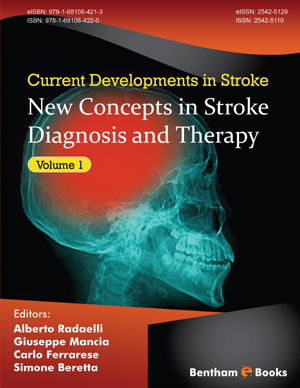Abstract
Stroke, the third most-common cause of mortality after cancer and heart disease in developed countries, is one of the most common causes of cognitive impairment and vascular dementia. Stroke pathogenesis and its consequences are not completely elucidated, with various factors and biological mechanisms probably having a role. After age, hypertension is the leading modifiable cardiovascular risk factor for ischaemic/haemorrhagic stroke, small vessel disease predisposing to lacunar infarction, cerebral white matter lesions (cWML), and cerebral microbleeds. Primary stroke prevention, involving hypertension therapy and blood pressure (BP) control is now standard. At the same time, elevated post-stroke BP levels increase the risk of recurrent stroke, with recent trials suggesting that BP reduction with combinations of hypertension therapy reduces stroke recurrence. This chapter reviews the evidence on hypertension as a stroke risk factor and the part played by hypertension therapy in first/recurrent stroke prevention.
Keywords: Cerebral microbleeds, Cerebral small vessel disease, Cognitive impairment, Hemorrhagic stroke, Hypertension, Hypertension therapy, Ischemic stroke, Lacunar infarction, Recurrent stroke, Vascular dementia, White matter lesions.






















